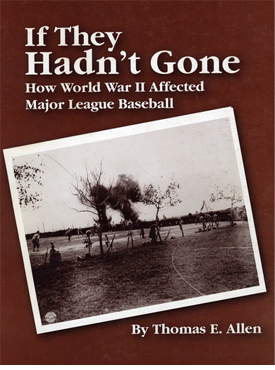Books
Buy your books from us! Images are linked to the buy pages at our Moon City Press catalog, distributed through the University of Arkansas Press.
Ìfẹ́olúwa Àyàndélé, My Father Paints His Dreams on My Body (2026) – $14.95
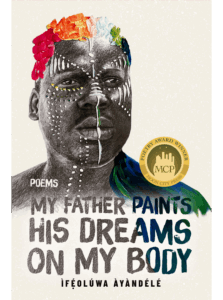
How do our ancestors inhabit the world that they have abandoned? What is the place of our family in our hearts? In this stunning debut collection, Ìfẹ́olúwa Àyàndélé reveals this interior world in which the past sings its lament in the present moment. The father is Àyàndélé’s connection to the deep past and his ancestors, who move through love and the Nigerian-Biafran war, but also through the luxuriant landscape of rivers and forests. How does one person balance the past and the present? Animals can show us the way of nature. Prayer can form a river of the soul as it chants, praises, and reveres the terrible beauty of this world.
Moon City Review 2025 – $18.95
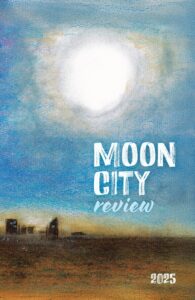
Maureen Aitken, Amy Ash, Fez Avery, Abbie Barker, MB Barker, Zack Bean, Laurel Benjamin, Andrew Bertaina, Jake Bienvenue, Kelli Short Borges, Melissa Boston, Sarah Boudreau, Timothy Boudreau, Kevin Boyle, Craig Buchner, Courtney Burton, Myna Chang, Grant Chemidlin, Christine H Chen, Brad Clompus, Johnny Cordova, Danny Coudriet, Julia Coursey, Kristin R. Crocker, Uyen Phuong Dang, Jim Daniels, Brianna Di Monda, Matthew Duffus, Jonathan Everitt, Jacklin Farley, Zachary Forrest Y Salazar, John Gallaher, Will Gibbons, Evelyn Gill, Madeline Graham, Mikaela Hagen, L Mari Harris, Claire Hero, Amorak Huey, Rachael Inciarte, Mickie Kennedy, James King, Frances Klein, Sydney Koeplin, Kathryn Kulpa, Patience Mackarness, Angie Macri, Kim Magowan, Suzanne Manizza Roszak, Andrea Disario Marcusa, Amy Marques, Adam McOmber, Michael Meyerhofer, Jennifer Stewart Miller, Claudia Monpere, Lynn Mundell, Richard Newman, Tom Noyes, William Palomo, Rachel Marie Patterson, Kelly Pedro, Melanie Pierce, Matthew Pitt, Meg Pokrass, Kimberly Ann Priest, Jordan Ranft, Kim Steutermann Rogers, Elizabeth Rosen, Karen Schauber, M.C. Schmidt, Sonya Schneider, Annie Schumacher, Dara-Lyn Shrager, Onna Solomon, Brooke Spalding, Dawn Tasaka Steffler, Jesse Strauss, Brendan Todt, William Torrey, Erin Vachon, Nora Wagner, Wendy Wallace, Katie Ward, Vallie Lynn Watson, Rachel Weinhaus, Gabriel Welsch, Nathan Willis, Wendy Wisner, Ellen June Wright, Allison Wyss, and Claire Zhou.
Cover art by Courtney Burton and design by Shen Chen Hsieh.
Sarah Freligh, Other Emergencies (2025) – $16.95
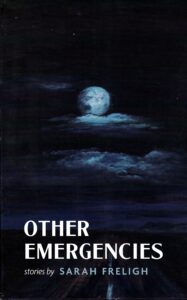
Tina Schumann, Boneyard Heresies (2025) – $14.95
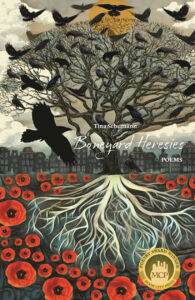
Boneyard Heresies, Tina Schumann’s forth poetry collection. is an investigation of personhood as seen through the prisms of magical thinking, grief, the dreamland of memory, and the vagaries of love. These often self-deprecating and at times darkly humorous inquiries are built around a scaffolding of self-portraits, epistles, and elegies. Ultimately, the collection explores the inevitable terminus of all living things, the ironic and faulty constructs of a rapidly moving world, and one’s place in the human tribe.
Avitus B. Carle, These Worn Bodies (2024) – $14.95
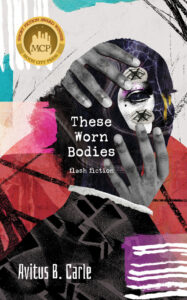
In this richly imagined and unconventionally told debut collection, Avitus B. Carle turns tradition on its head, discarding and reframing antiquated portraits of women and girls as damsels, princesses, and homemakers relegated to lives of cleaning and baking and waiting in towers to be rescued or to receive a truly forced first kiss. Instead, Carle’s characters face the world head-on in unique, bold, and unexpected ways.
Moon City Review 2024 – $18.95

Julia Anna Morrison, Long Exposure (2023) – $14.95
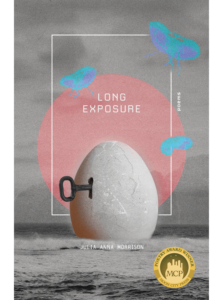
Long Exposure follows a single mother in the years after her son’s birth as she struggles with postpartum depression and a painful separation from her child’s father. Forced to reckon with her own childhood experiences, including the death of her brother to an accidental overdose, the speaker examines, as if through a camera lens, memories videotaped together. The book explores familial grief, addiction, and mental illness through language both surreal and plain, domesticated and haunted. These poems ask what it means to be an artist and a mother, outside of female friendships and romantic relationships. The poems, experienced as part fever dream, part damaged video footage, exist in a darkly overgrown and hypnotic landscape. Ultimately, the book is a portrait of a speaker locating many selves from long ago, resurrecting what images she can from the recovered video footage of her personal archive.
Lee Ann Roripaugh, Reveal Codes (2023) – $14.95
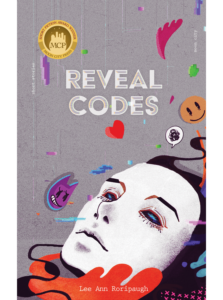
Reveal Codes is a collection of short stories mapping the ways in which people, and other animals, read and misread, communicate and miscommunicate, mask and unmask, with and around one another. In the abandonware word processing program, WordPerfect, “reveal codes” is the command that reveals the coding behind the face of a document. The stories in this collection spiral around a (bio)semiology of the multiplicities of desire. In a series of pas de deux, or duets, the characters in these stories try to make themselves legible to family, friends, and lovers—revealing their messy patterns, their bare-faced vulnerabilities. These are stories that unfurl tentacles of longing made with language in an attempt to decode the illegibility of an incoherent and inchoate surrounding world.
Moon City Review 2023 – $16.95
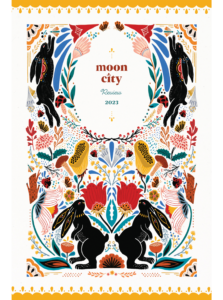
Adam Scheffler, Heartworm (2023) – $14.95 On Sale for $9.95!
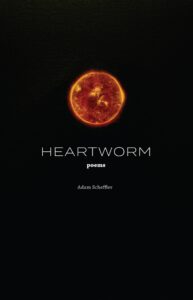
Imagine a keen eye and spritely intellect turned toward this thread-worn world. Heartworm, Adam Scheffler’s second full-length poetry collection, gives readers exactly that. An example: The poem “Advice from a Dog” translates wisdom from, yes, a dog, beginning with the exhortation to “Piss expressively.” From there, however, the poem gets to the literal heart of the matter, commanding, “[S]mell also the worms coiled up in / the human heart, thousands.” But maybe you’re not a dog person. “For I Will Consider This Cockroach Belinda” is a contemporary reworking of “For I Will Consider My Cat Jeoffry” by eighteenth-century poet Christopher Smart. Here, Scheffler praises Belinda, found in his sink “like a tiny Vishnu waving her many arms,” or creeping up the curved wall of the sink “like a monk in silence.” It doesn’t matter what the world gives him; Scheffler pays attention – takes notes and shows up to the test prepared. Heartworm’s forty-two poems send countless pricks and wriggles through the chest cavity as they ruminate on racehorses, ghosts, mosquitos, Zambonis, Mondays … the ordinary and often devastating stuff of our lives.
Michele Finn Johnson, Development Times Vary (2022) – $14.95
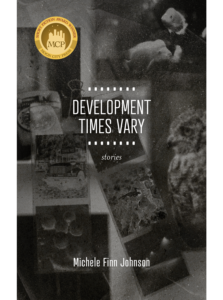
Michele Finn Johnson’s colorful, witty stories hum with life. Characters in each of these thirty-six stories evolve at different rates, resulting in missed connections, almost connections, and—best-case scenario—close connections. A high-schooler struggles to figure out where she fits into the stereotypical landscape, searching for her space between these castes; Baby Albert grasps the concept of gravitational waves while his parents have difficulty operating the DVD player; bats mate by instinct while pregnant humans struggle to align. Writing about love, sex, loss, and joy, Johnson exposes the core of her characters.
Moon City Review 2022 – $16.95
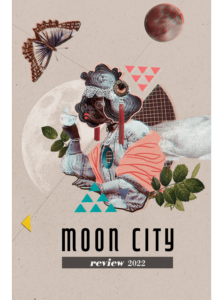
Claudia Putnam, The Land of Stone and River (2022) – $14.95 On Sale for $9.95!
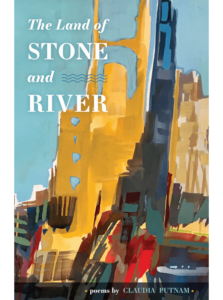
The Land of Stone and River explores the wonder and terror of being human in a world both at its apex (in this period of between the earth’s various traceable ends, anyway) and tipping at the brink of another major extinction event. People are small beings in a vast, ungraspable landscape of geography, time, and disaster—at the mercy of wind, tangled in history, caught in illness that can seem as inexorable as weather, tide, or geology. We persist. And the world with us.
Andrew Bertaina, One Person Away From You (2021) – $14.95
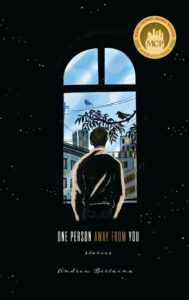
One Person Away From You is a collection of stories that oscillates between the fantastic and the familiar: for every woman who turns into a swan, there’s a man who bungles a romantic relationship in Italy; for every sky that rains a torrent of laughter, there’s a husband reminiscing about his honeymoon. Above all, the stories explore our common lot of lostness and longing, our question of whether our life and loves are the right ones or the product of some cosmic error. Whether it’s a sea appearing suddenly in a bone dry valley, an angel musing on his relationship with a mortal woman, or a narrator yearning for an absent lover the deeply emotional stories search for meaning. Throughout this collection, characters and entire towns search through the constructs of identity, time, fairy tales, and love letters, to find the flicker of constancy in the sea of change that is human life.
Moon City Review 2021 – $16.95
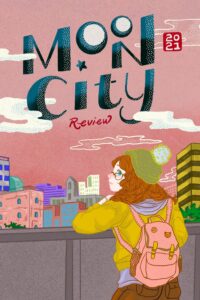
Bret Shepard, Place Where Presence Was (2020) – $14.95
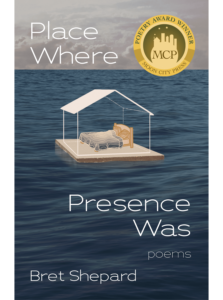
“Contour lines // down your side of the bed …”: Such lines mark Place Where Presence Was, Bret Shepard’s debut full-length collection and winner of the Moon City Poetry Award.
Here, Shepard probes intimacy and its absence with endlessly inventive ways of approaching his theme. In one poem, X marks the spot (on a calendar); in another, the title poem, the invisible path of his lover through his home are viewed as marks of elevation. For Shepard, the map is a tool to make sense of the world and our relationship to it, and the poems themselves add another dimension from which to view the spaces between us.
These are poems of longing and a recognition of all the ways desire stretches distance ever farther —and of “the necessary ways we quiet / into nothing at all.”
Pablo Piñero Stillmann, Our Brains and the Brains of Miniature Sharks (2020) – $14.95
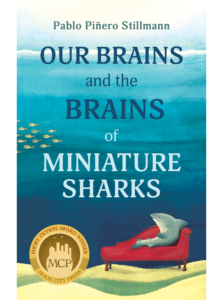
Desperate to find a cure for his depression, a young man forges an odd relationship with a disgraced scientist. The descendant of a refugee tells her family story using symbols instead of names. A lonely boy from a broken family finds solace in a television show hosted by a mysterious man. In these stories, equal parts sad and funny, Pablo Piñero Stillmann’s characters lose themselves as they search for meaningful human connection. These are stories of chaos—internal and external—of chasing and escaping, of intense longing, but most of all, the nine stories in this book are portraits of people wrestling with their deepest flaws.
Moon City Review 2020 – $16.95
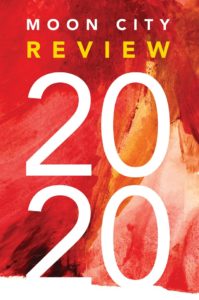
Phong Nguyen, Roundabout (2019) – $16.95
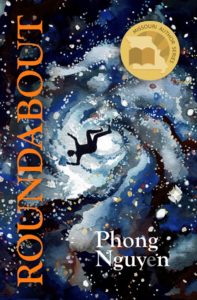
Ovid Dullann works as an assistant accountant for a multinational corporation and is supporting a family of four; abruptly, on his forty-ninth birthday, Ovid runs away from his daily work and his loving family to go on a road trip. Struck by inspiration, Ovid knows that an Author is writing about him, and will do anything to avoid acting as a protagonist of a book. However, this Author will not abandon his pursuit, and vows to punish Ovid, his wayward protagonist.
Kathy Goodkin, Crybaby Bridge (2019) – $14.95
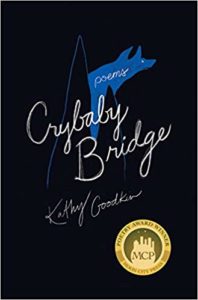
In poem after poem, the pages of Crybaby Bridge present a series of tiny revelations, like in “Spontaneous Generation”: “I got alive / the same as you: / salt made // a small, reckoning.” It’s all so simple, so right there—but poet Kathy Goodkin’s sweeping floodlights allow us to see it. In this book, Goodkin observes an ordinary world with its small tragedies and workaday beauties—forests and fields that give way to housing developments, balloons blooming outside a party store, cars winched from rivers—and she gives it to readers straight. Goodkin’s several poems titled “Sleep Paralysis” offer a helpful lens for understanding the pictures each poem presents. When you can’t look away, you get a chance to take it all in, the reservoir, the larkspur, the slow and insistent layered growth of a city.
Amanda Marbais, Claiming a Body (2019) – $14.95
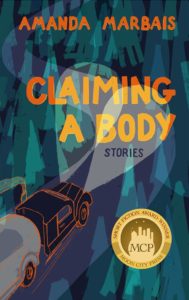
The stories in Amanda Marbais’ Claiming a Body read like dispatches from a frontline strewn with infected relationships, metastasizing anxieties, and cultural fatigue. Propelled by sympathetic characters and assertive voices that both capture and convey a uniquely contemporary dread, these virtual confessions reveal life at its most negotiable: a woman overcomes her fear of both commitment and grizzlies in the unspoiled wilderness of Glacier National Park; a couple cons friends one last time in the decaying rustbelt before turning on each other; the son of a poultry farmer struggles with inhumane practices while resisting the undercurrent of violence in his high school.
Just as Marbais’ characters seek to cross painful thresholds and unearth their better selves, her collection finds ways to communicate across traditional genre lines, bringing together such disparate styles as noir, environmental fiction, and speculative fiction. Woven throughout is a hard-wrought prose that crackles with a steady stream of references to the modern American landscape that is frequently to blame for the chaos left in its wake.
Moon City Review 2019 – $16.95
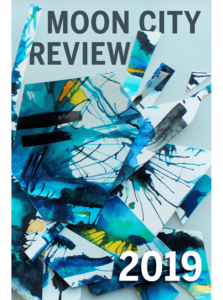
Jane Hoogestraat, Here on This Plain (2018) – $14.95 On Sale for $11.21!
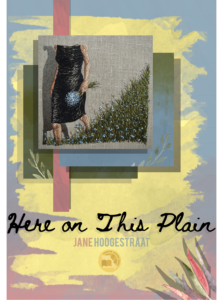
A keen sense of place permeates Here on This Plain, the final collection by the late Jane Hoogestraat, winner of the John Ciardi Prize. Compiled before her 2015 death, this collection reflects the preoccupations that will be familiar to Hoogestraat’s readers—nature, time, the spirit—though they are here relocated from the prairie to the East Coast, Chicago, and southern Missouri.
The poems in Here on This Plain look unabashedly at mortality, as in “What Matters”:
There is a limit for everyone
on the number of summers
when the first firefly appears.
It is a poem that concludes with a haunting realization:
I who have lived so thoroughly
believing language constructs everything
learn late not everything can be read.
But it is not too late to read these careful constructions of a rich, contemplative poet at the apogee of her talent.
Clayton Adam Clark, A Finitude of Skin (2018) – $14.95 On Sale for $11.21!
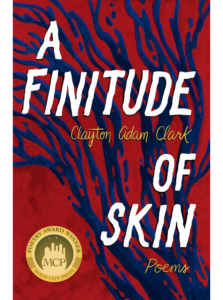
Clayton Adam Clark’s A Finitude of Skin opens with Missouri, its fissures and declivities and hidden chambers:
Blame it on the limestone—the sinkholes,
the speleological interest, an overwhelming
karstness here. People get lost.
And indeed, people do get lost. The poems in A Finitude of Skin depict the acting and interacting of so many bodies, from bacteria to armadillos, from seed ticks to an oak tree so big you can’t wrap your arms around it. It’s in this environment that a narrative takes shape: a couple coming together and then, like everything else, breaking apart. By braiding the language and imagery of these bodies, Clark’s verse reflects the complicated ecosystem two people can form, honing in on the strange places they make contact, and don’t. Once we become entrenched in these Cave State landscapes and the goings-on of all these bodies, we can see and feel the many ways, “life there is vulnerable to disruption.”
Kim Magowan, Undoing (2018) – $14.95
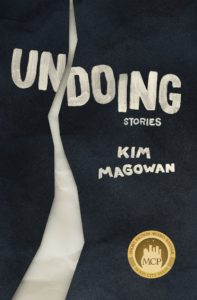
In Kim Magowan’s aptly titled debut short-story collection, Undoing, characters are frequently caught with their eyes on the past, trying to discern where it all went wrong, whether that concerns a marriage that survives infidelity only to fade later into oblivion or the premature termination of an affair. A young girl hopes to make sense of her seduction by the father of the child she babysits, while a new wife surveys her youthful indiscretions for clues as to how to forge an emotional bond with her anorexic stepdaughter. Through it all, struggles become universal, perhaps inevitable. Characters often reappear: older, wiser, seeking to break the cycle of dysfunction. The ultimate effect is a feeling of community, of shared mistakes, leaving the individuals lonely but not alone.
In this way, Magowan’s collection moves well beyond reflection. Ignoring the wreckage of their respective pasts, her characters are willing to look ahead, to try again. Indeed, there is much pain and lasting harm to go around, but these are curious, resilient people, open to the idea that the solutions, not just the problems, lie within. They hope, despite much evidence to the contrary, that they can undo what has been done.
Moon City Review 2018 – $16.95
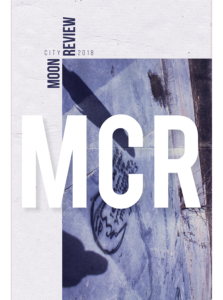
Walter Bargen, Too Quick for the Living (2017) – $14.95

In Too Quick for the Living, Walter Bargen adds his poetry to the Missouri Authors Series with a resounding rollick of a collection. Poems included range from a quiet look at people and places left behind to an outright celebration of survivor-hood with a sprinkling of pop culture icons to show the way. Over all, the collection pleases the senses before the abrupt realization that even though the poems are “More Moses than Neil Young,” as Young would say, Something is happening here even if what it is ain’t exactly clear.
Kerri French, Every Room in the Body (2017) – $14.95
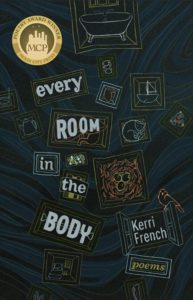
Every Room in the Body, winner of the 2016 Moon City Poetry Award, gives an intimate look at the body not only as spirit, but also as the house of blood and bone that makes life and betrays life. It is a complex sequence of poems addressing a difficult pregnancy, but more specifically, the dynamic between the body, nature embodied, and expectations. There is sadness, yes, but also a calm assessment of the process and the days, good and bad, that ends with a quiet joy. As French says in the preface poem “Residence,” “Here is a map / that multiplies her hunger. Here / is the sound where it all began.” Begin with her and trace the days.
Michelle Ross, There’s So Much They Haven’t Told You (2017) – $14.95
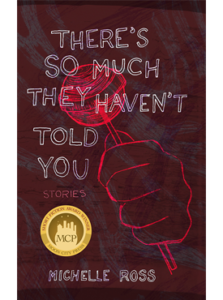
Michelle Ross’ debut short-story collection serves as an encyclopedia of modern relationships, taking special interest in those formed on unequal footing, pitting daughters against mothers, wives against husbands, friends against friends. Legacy looms large, as behaviors are passed from one generation to the next, and those entrusted with caring for the young or keeping others employed are found derelict in their duties. Weaknesses are exploited, ignorance is exposed, and bonds are occasionally dissolved. Regarding the human condition as it is portrayed throughout this collection, one character’s words echo prophetically: “You’re at the complete mercy of giants who don’t understand you.”
In spite of all this, Ross’ stories are ultimately tales of striving: to understand, to connect, to reclaim. Themes of discovery are woven tightly, as these individuals, rather than remain in the dark, are regularly drawn to the light that is missing from their lives. Optimism may not abound, but neither do these characters wallow. Time and time again, they evolve into agents of change within their own lives, even if they sometimes choose not to act.
In the end, such thematic depth gives rise to an astoundingly diverse array of voices, styles, and structures. No two entries in Ross’ collection are alike, and collectively they reveal the potential of the American short story, leaving little unsaid.
Moon City Review 2017 – $16.95
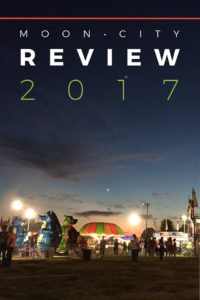
Mary Troy, Swimming on Hwy N (2016) – $14.95
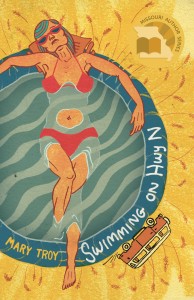
Madeline Dames moves to a small town in the Missouri Ozarks to get over the death of her third husband, but instead finds herself reliving another past. Her damaged younger sister shows up at her trailer, having changed her name from Angie to Misery, and no sooner does Misery move in, the abusive mother both sisters fear, Wanda, comes for a surprise visit.
When Madeline’s new beau, Randy, brings two young people, a man and a woman, to Madeline’s, claiming they need a place to stay, Madeline agrees. As it turns out, the young man is a deserter from the Iraq War. After writing some radical letters to newspapers, defending his desertion, he is forced to leave the country, and Randy vows to help the pair escape to Canada. Madeline, Misery, Wanda, Randy, and the two young people head to the Northwest, the best exit point, but are chased by a Nebraska bus boy/bounty hunter, a patriot group with more Internet presence than resolve, and a renegade nun and her Blackfoot wards.
Swimming on Hwy N is an unpredictable generational story about abuse, recovery, love, hate, bravery, fear, devotion, and disillusionment. Sixty-year-old Madeline and the rest of the characters have to make several crucial choices, all of which can and will affect their lives on the road, and forever. Along the way, everyone learns their most important lesson, that you can never grow too old to surprise yourself.
Jeannine Hall Gailey, Field Guide to the End of the World (2016) – $14.95
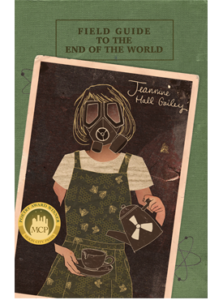
Field Guide to the End of the World, winner of the 2015 Moon City Poetry Award, delivers a whimsical look at our culture’s obsession with apocalypse as well as a thoughtful reflection on our resources in the face of disasters both large and small, personal and public. Pop-culture characters—from Martha Stewart and Wile E. Coyote to zombie strippers and teen vampires—deliver humorous but insightful commentary on survival and resilience through poems that span imagined scenarios that are not entirely beyond the realm of possibility. The characters face their apocalypses in numerous ways, from strapping on rollerblades and swearing to taking notes as barns burn on the horizon. At the end of the world, the most valuable resource is human connection—someone holding our hands, reminding us “we are miraculous.”
Laura Hendrix Ezell, A Record of Our Debts (2016) – $14.95
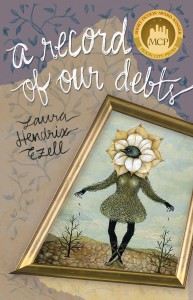
In her debut collection of stories, Laura Hendrix Ezell assembles a harmonious chorus of resilient female voices—many speaking from the margins of their own lives, all contemplating their complicated relationships with the men who influence their trajectories. Set against rural backdrops whose emptiness and isolation hint at constrictive forces rather than wide open spaces, Ezell’s stories capture their characters not only at their most vulnerable and desperate, but also at essential moments of self-discovery, of purposeful recognition of the extenuating circumstances that have shaped their respective fates.
Throughout A Record of Our Debts, Ezell weaves together diverse, distinctive tales with remarkably fluid yet muscular prose that belies the desolate imagery contained within. These are striking, memorable odes to overcoming, though not always in ways that leave the characters whole. These are people who somehow manage to find themselves in the aftermath of loss, who uncover their own modest strengths while surrounded by so much weakness. This is a long, winding road of adolescents forced into prostitution by their own fathers, healers still haunted by the men they could not save, and widows who convert abandoned churches into makeshift diners in the hopes of luring back their husbands’ spirits. In short, this is a powerful exploration of the human spirit at both its best and its worst.
Ezell’s figures extend well off the page, lingering in one’s memory long after the final line. For that, readers owe Ezell a debt of gratitude.
Moon City Review 2016 – $14.95
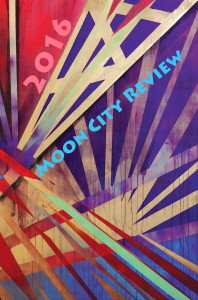
Sarah Freligh, Sad Math (2015) – $14.95
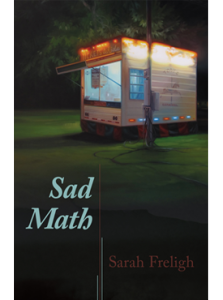
In Sad Math, Sarah Freligh takes us for a ride through an American girlhood, a retrospective landscape of parking in cars and illicit kisses in a Donut Delite. Here, time is measured not only in days and years but in physical distance, a past that is understandable only when viewed through a rearview mirror. Along the way, there are not only losses, but also the accumulation of experience and the insistence of possibility.
Cate McGowan, True Places Never Are (2015) – $14.95
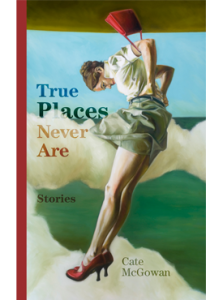
In her debut collection, Cate McGowan introduces us to an assortment of characters, a passenger manifest voyaging through loss and salvation. The book’s title borrows from Moby Dick: “It is not down on any map; true places never are.” McGowan’s characters are indeed off the map; they venture into wondrous worlds as knotty and distressing as the places they aim to leave.
In prose highlighted by moving observations and vivid imagery, McGowan’s characters represent an unusual hodgepodge of everyman—children, men, and women who inhabit different eras and countries, all sharing the need for deliverance. They populate the aftermath of tragedy. Deeply affecting and varied in tone, the nineteen stories in the collection are a colony of laundromats and the Louvre; of mule pulls and boxing rings; of Georgia red clay and cobblestones.
In this collection, true places are indeed hard to find, yet hope is every person’s traveling companion. In True Places Never Are, McGowan reminds us that wherever you are in the world, redemption might not be far away.
Steve Yates, The Teeth of the Souls (2015) – $32.95
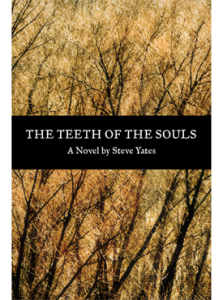
The story begins just after the Civil War when Leighton Shea Morkan, son of Irish immigrants, marries Patricia Grünhaagen Weitzer, daughter of a German banking family. Yet he can’t let go of his childhood love and wartime confidante, the house hand and former slave, Judith. Both unions produce children, one a shrouded secret, and one the heir to the Morkan legacy: the limestone quarries of Springfield, Missouri, and the bloody past, what Judith calls “The Teeth of the Souls.”
Grounded in broad historical research and spanning Missouri’s reconstruction, vigilantism, and fall from grace, The Teeth of the Soulschronicles the violent melding of immigrant strains—Irish, German, Scots-Irish, and African American—into the fabric of the Ozarks.
Moon City Review 2015 – $14.95
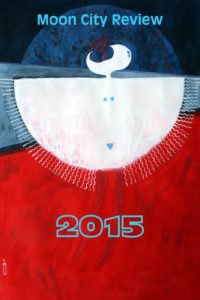
Trudy Lewis, The Empire Rolls (2014) – $16.95
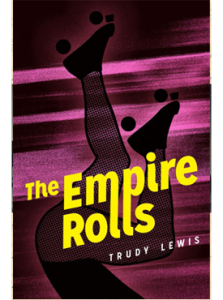
Sally LaChance leads a double life. By day, she works as a park ranger in a midsized Missouri town. At night, she acts as emcee for the local roller derby team, the Boonslick Bombers, at the Empire Roller Rink. Sally loses her temper one day and pulls a gun on a group of polluters in Karst Park. Her boyfriend, a video artist, captures the moment on film and posts the footage to YouTube, putting Sally’s job, her relationships, and her life at risk.
Just before the financial crash of 2008, Sally LaChance must wind her way through the crumbling economy, a DIY skating corps, angry veterans, a slacker boyfriend, an evangelical mother, the war machine, and ever-encroaching private interests. The Empire Rolls captures the changing cultural landscape of the Midwest at a critical moment in history. The Empire Rolls. And it is rolling still.
Debra Kang Dean, Fugitive Blues (2014) – $7.95
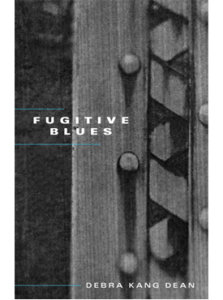
Moon City Review 2014 – $15.95
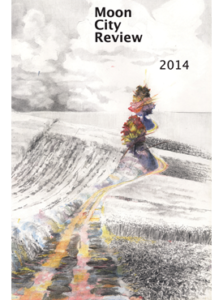
Moon City Review 2013 – $15.95
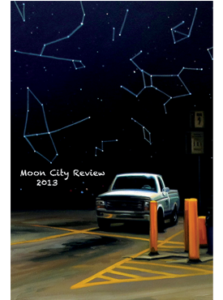
Moon City Review 2013, edited by creative-writing faculty and students from Missouri State University, provides a challenging and entertaining representation of today’s competitive literary landscape.
Michael Burns, Night of the Grizzly (2012) – $10.95
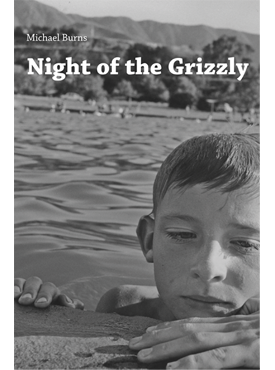
Twenty-one of the thirty-six poems printed here have appeared in such distinguished venues as The Paris Review, The Southern Review, Western Humanities Review, The Laurel Review, and Moon City Review.
Moon City Review 2012 – $29.95
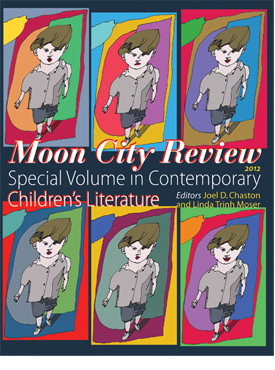
Fredrick French, Tommy Atkins at Home and Abroad (2012) – $19.95

Travis Mossotti, My Life as an Island (2012) – $7.95
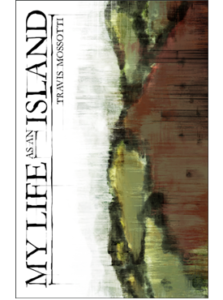
“Whether portraying the hardscrabble poor living along the Mississippi River or staring as Guillaume Apollinaire stared into Le Seine in Paris, Travis Mossotti evokes the ghosts of his own working-class family. His urgent meditations upon three generations of Italian-American men torn apart by economic hardship and death transport us, in achingly beautiful detail, to the Meramec River and Missouri hills of a bygone era. In My Life as an Island, Mossotti sings of St. Louis, of a heritage the poet equates with “‘the crumbled red brick façade / of burned-out warehouses on the edge / of a river that is more American / than I can stand.’”
—Marcus Cafagña, author of The Broken World and Roman Fever
Gerald Duff, Blue Sabine (2011) – $19.95
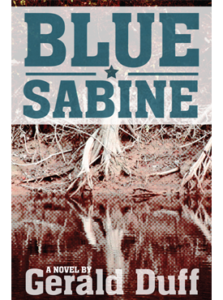
Blue Sabine is a story of five generations of women in the same family, told in their voices, along with those of some men of Holt blood. It is set along the Sabine River, which divides the state of Texas from Louisiana and the Deep South. From 1867 (when the Holts first came to Texas) to the present, the novel chronicles the emotional lives of grandmothers, mothers, daughters, and nieces, all bound by kinship and history. Each comes to terms with being a woman in the West, in Texas, and in her own way and her own time. In its flow and its setting of boundaries, the Sabine River comes to reflect what remains and what changes in the way the Holt women see their world and themselves.
Moon City Review 2011 – $19.95
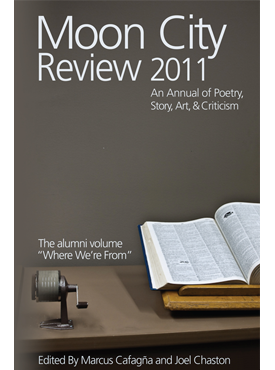
Moon City Review 2010 – $15.95
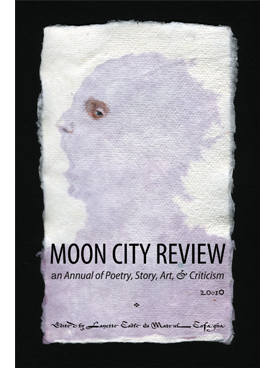
Burton Raffel, Yankee Doric (2010) – $29.95
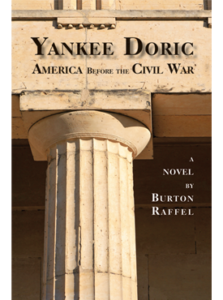
Steve Yates, Morkan’s Quarry (2010) – $27.95
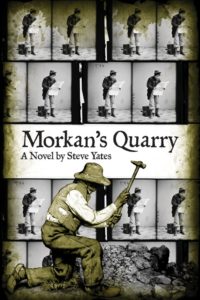
In 1861, the Civil War severs Michael Morkan from everything he loves and all that defines him—from his son, Leighton; from his love, Cora Slade; and from the quarry he owns in Springfield, Missouri. Forced to give his black powder to the Missouri State Guard, he finds himself indelibly labeled a rebel traitor and is imprisoned in St. Louis. Back in the Ozarks, Leighton joins the Federal Home Guards in hopes of paroling his father. When Leighton finally frees him, the two are pitched in a last gambit for their quarry and for the legacy of the name Morkan.
Portions of Morkan’s Quarry first appeared in Missouri Review, Ontario Review, and South Carolina Review. A novella-length excerpt was a finalist for the Pirate’s Alley Faulkner Society William Faulkner / Wisdom Award for the Best Novella.
George H. Jensen, Jr., Some of the Words Are Theirs: A Memoir of an Alcoholic Family (2009) – $29.95
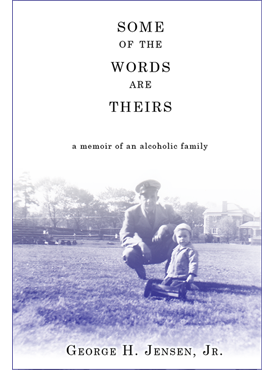
Moon City Review 2009 – $15.95
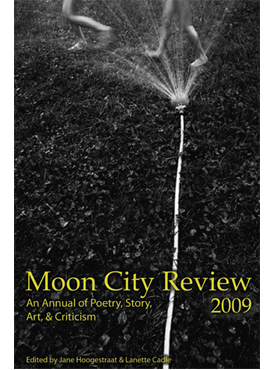
For, From, About James T. Whitehead: Poems, Stories, Photographs, and Recollections (2009) – $15.99
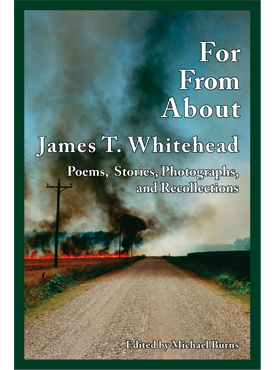
In this anthology of original poetry, short fiction, essays, and remembrances, twenty-four of Whitehead’s colleagues, students, and friends join in celebrating the man’s life and contribution to American letters. Included are posthumous works by Whitehead himself: six poems, an excerpt of creative nonfiction, and a draft-excerpt from Coldstream, projected sequel to Joiner.
Contributors: President Jimmy Carter, Miller Williams, Bill Harrison, Barry Hannah, Dave Smith, Beth Ann Fennelley, Lewis Nordan, C. D. Wright, Leon Stokesbury, R. S. Gwynn, John Dufresne, Jo McDougall, Michael Heffernan, Donald S. Hays, Van K. Brock, W. D. Blackmon, Josh Capps, Steve Yates, Nancy A. Williams, William Harrison, MD, Robert Pomeroy, Harold McDuffie, John N. Marr, and Kathleen W. Paulson, MD.
Jim W. Corder on Living and Dying in West Texas: A Postmodern Scrapbook (2009) – $15.00
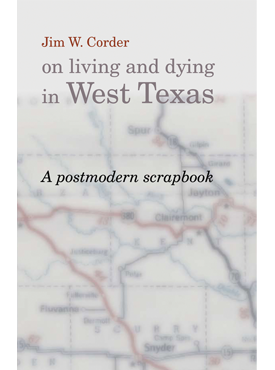
—Craig A. Meyer, Ohio University
Jim W. Corder will be remembered by students and colleagues at Texas Christian University for his writing, teaching, and original thinking. He was one of the most influential composition specialists of his generation—his Handbook of Rhetoric went through numerous editions, becoming a classroom staple nationwide—yet he gave his final years to the “fourth genre” of creative nonfiction. His numerous publications include Lost in West Texas (1988), Chronicle of a Small Town (1989), and Yonder: Life on the Far Side of Change (1992).
James Whitehead, The Panther: Posthumous Poems (2009) – $15.00
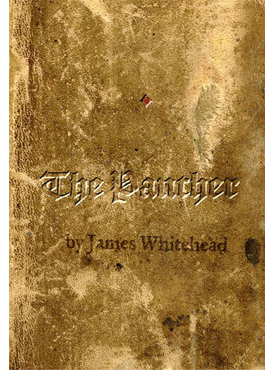
Jim W. Corder, The Heroes Have Gone: Personal Essays on Sport, Popular Culture, and the American West (2008) – $15.00
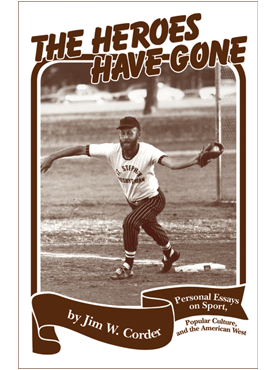
Thomas E. Allen, If They Hadn’t Gone: How World War II Affected Major League Baseball (2004) – $14.95
